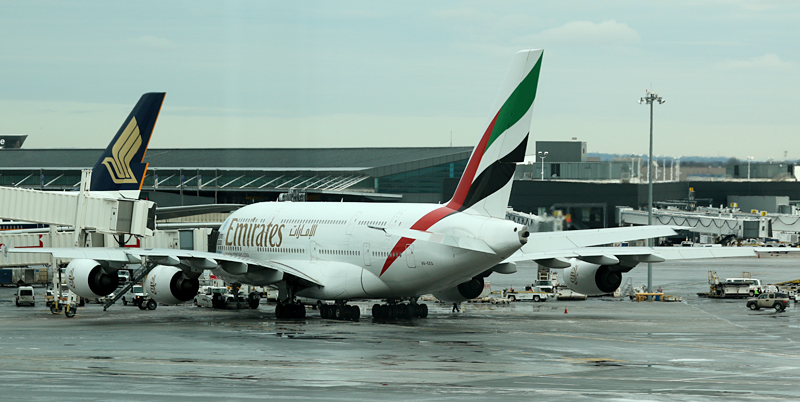O il prices have been on a steady decline recently; and as of today, they descended approximately 6.2 percent since yesterday to the lowest price in almost seven years at $37.65 per barrel, based on the West Texas Intermediate benchmark.
One major reason cited for the continued decline in oil prices include the decision by the Organization of the Petroleum Exporting Countries — also known as OPEC — not to constrain the production of oil, according to this article written by Paul Davidson of USA Today. This is despite a glut of oil supplies in the global market…
…and if you had been purchasing fuel for your vehicle, you most likely noticed that less money is leaving your wallet or purse, as gasoline prices at fuel stations continue to decrease. Although there have been reports of gasoline prices in several states in the United States falling below $1.50 per gallon, there are indications that they will continue to drop. Fuel stations in parts of Texas have dipped below $1.40 per gallon — although all but one have since recovered modestly in the price per gallon, with the lone holdout being a fuel station in Wharton.
A strong United States dollar — the currency on which crude oil is traded — and mild weather conditions have also been cited amongst the reasons for the pressure against the price per barrel of crude oil.
Lower Oil Prices: A Crucial Test for Gulf Carriers?
The United Arab Emirates and Qatar are two of the thirteen member countries of OPEC; and those countries are the bases of the three largest carriers in the Persian Gulf region: Emirates Airline, Etihad Airways and Qatar Airways.
The growth of the economy of the United Arab Emirates has slowed to its lowest rate in six years where projections are forecast for the economic growth to be as low as two percent — which at least is still on the positive side — and falling oil prices are a significant part of the blame. “The UAE is by far the most diversified economy in the region”, said Philippe Dauba-Pantanacce — who is a senior economist for the Middle East at Standard Chartered — according to this article written by Adam Bouyamourn of The National. “And Dubai is the best form of diversification away from oil that the UAE could ever have dreamed of.”
Perhaps — but that article was written back in August of 2015; and oil prices have plummeted further since then. According to a more recent article written by Santhosh V. Perumal of Gulf Times, the nation of Qatar was praised last month by the International Monetary Fund for its “solid and strong policy measures to diversify the economy.” Despite the latest report of inflation in Qatar rising by 1.9 percent, non-hydrocarbons reportedly contributed 62 percent of the real gross domestic product of Qatar in 2014; while the remaining 38 percent was from the hydrocarbon sector. “A non-oil GDP growth of more than 10% is impressive,” Christine Lagarde — who is the managing director of the International Monetary Fund — reportedly said at a symposium at Georgetown University.
Summary
All of this got my mind thinking — and that can be a dangerous thing — that had me wondering if this is a true test for the three Gulf carriers. The chief executive officers of Delta Air Lines, American Airlines and United Airlines have collectively blatantly accused the three Persian Gulf carriers of being illegally subsidized to the tune of billions of dollars — $42 billion back in March — by their respective governments.
Perhaps my logic is skewed; but if what the chief executive officers of the carriers based in the United States are correct — and if the United Arab Emirates and Qatar are dependent largely on the oil industry in terms of economic growth of their countries — then would it not make sense that those governments would eventually not be able to continue those alleged levels of subsidization? If the oil glut continues — as it is expected to do over the next six months at a minimum — could the carriers based in the Persian Gulf region be able to ride out the slowing economies of their governments long enough to survive their supposed onslaught against the carriers based in the United States?
If Emirates Airline, Etihad Airways and Qatar Airways do eventually have financial issues or cutbacks in service, does that mean that the chief executive officers of the three legacy airlines based in the United States were correct in their accusations? If those carriers based in the Persian Gulf region prosper despite the economic downturn caused by falling oil prices, does that mean that the allegations from Delta Air Lines, American Airlines and United Airlines will have been proven to be unfounded?
Assuming that the figure of $42 billion in alleged illegal subsidies has not increased, that is not exactly pocket change to any entity based in an area where there is a shrinking economy. If the allegations of illegal subsidies are indeed true, there could be potentially significant setbacks of which the three Gulf carriers may be forced to face.
The next year could prove to be quite interesting — and perhaps answer some of those questions.
Photograph ©2015 by Brian Cohen.

